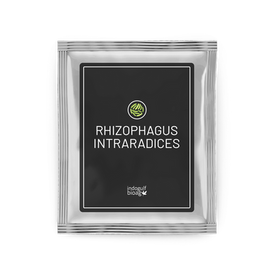
Why is it important
G. intraradices plays a significant role in promoting sustainable agriculture and improving crop productivity, especially in nutrient-poor soils. Phosphorus, a key nutrient for plant growth, is often limited in availability because it binds tightly to soil particles, making it challenging for plants to absorb. G. intraradices is particularly effective at accessing and mobilizing phosphorus, allowing plants to thrive even in soils with low phosphorus availability. By increasing nutrient uptake, it can reduce the need for chemical fertilizers, which are costly, can lead to environmental pollution, and may disrupt soil health over time.
Additionally, G. intraradices enhances plant resilience to environmental stresses like drought and soil salinity. By improving water uptake and helping the plant establish a more robust root system, it enables crops to withstand challenging growing conditions. This makes it an invaluable tool in sustainable and organic farming systems, as it promotes healthy plant growth while supporting soil health and reducing the reliance on synthetic inputs.






